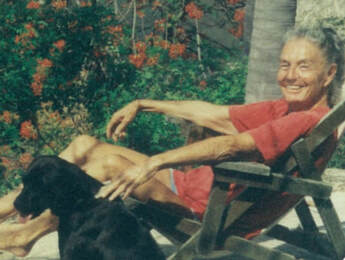GLORIA ELIES
BIOGRAPHY

Gloria Elies was born in 1923 in Toronto, Canada. Gloria drew and worked in plastiline from early childhood, making images of the animals she loved. Her basic training in the visual arts occurred in her teens at Western Technology School in Toronto, which she attended from 1938 to 1942. During a 1946 trip to New York, Gloria encountered museum reproductions for the first time. She return to Toronto and started making hydrostone reproductions of a three-‐ dimensional works in the collection of the Royal Ontario Museum. Familiarizing herself with the museum collection, she learned how to cast in rubber latex is a skill she always practiced. In 1948, Gloria travelled for the first time to Mexico; it was a place of great beauty and simplicity. She “fell hopelessly in love” with the country. In 1952-53 she hitchhiked and youth-hostelled through England, Western Europe and French North Africa. She married, had two children as she continue the reproductions and her artistic paintings and sculptures for 5 years in Nice, France. She returned to Mexico permanently in 1958. In her Mexican studio, her reproductions of Paleolithic goddesses, ancient Chinese tigers, miniature Egyptian scribes, and Pre-‐Colombian figurines sit side by side with models and cast of her own sculptures, establishing a lively dialogue between past and present, intimacy and monumentality. For decades she juggled for most of her live the competing roles of artist, wife, mother, businesswoman—“You might add I’m a philosopher, a non-‐ conformist, and a feminist” she said.